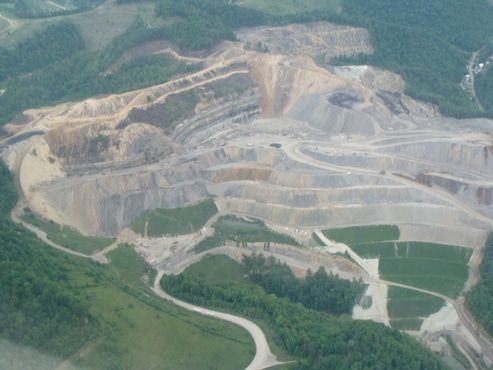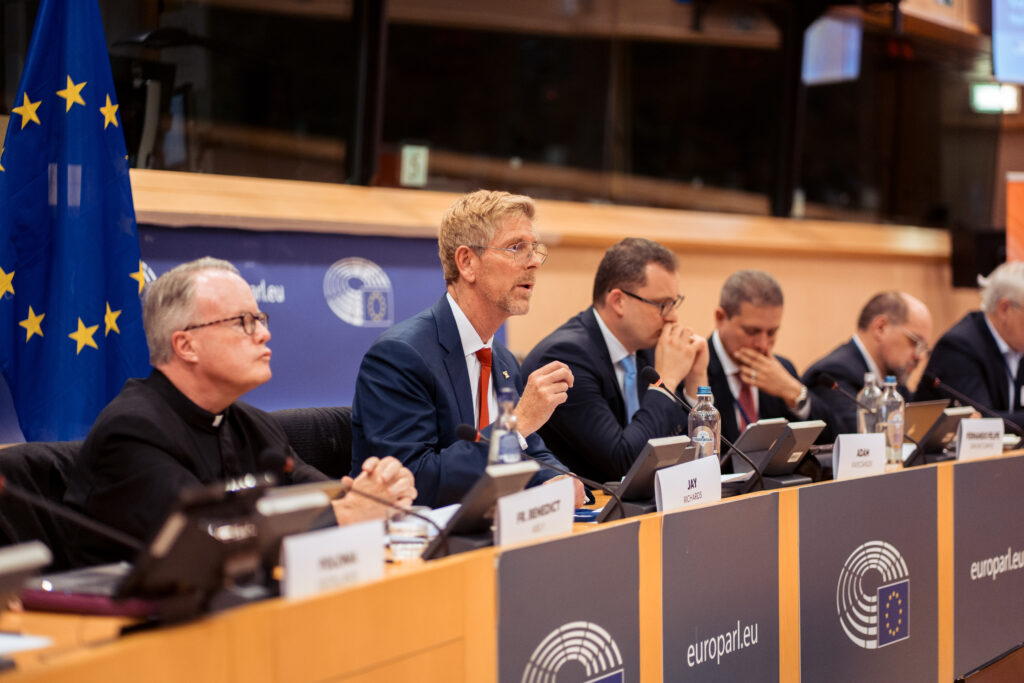A group of the nation’s leading environmental scientists is calling on the U.S. Environmental Protection Agency and the U.S. Army Corps of Engineers to stop issuing new mountaintop mining permits, arguing that the ecological and human health costs of the controversial mining practice are “pervasive and irreversible.”
The group of scientists published the first comprehensive assessment of the ecological and health impacts of mountaintop removal mining today in the journal Science, describing how the impacts of current and former mountaintop removal operations will be felt for centuries, with major implications for water quality, biodiversity, and human health. Shockingly, there’s never been a comprehensive assessment of MTR impacts until now.
Published only a few days after the Obama EPA misguidedly approved the expansion of Hobet 45, part of the largest mountaintop removal coal mine in West Virginia, the paper concludes that mountaintop removal’s impacts are much too steep to justify. The authors’ analysis of peer-reviewed research unequivocally confirms irreversible environmental impacts from mountaintop removal, a practice that also exposes local residents to a greater risk of serious health problems.
The paper, titled “Mountaintop Mining Consequences,” is the result of a broad analysis of the latest scientific findings and new data on the environmental impacts of mountaintop removal. The scientists received no outside funding and donated their time to work on the study.
Co-author Dr. Emily Bernhardt of Duke University describes in the study how toxic chemicals and metals released into streams from “valley fills” – the debris blown off the mountaintops and dumped into valleys below where it impairs, or often literally buries, streams – take a serious toll on Appalachian biodiversity. Despite industry claims that mine reclamation and mitigation practices have lessened the impacts, the facts clearly show that these efforts do not prevent toxic contaminants from moving into downstream waters where the harm magnifies and affects the entire ecosystem.
“Over the last 30 years, there has been a global increase in surface mining, and it is now the dominant driver of land-use change in the Central Appalachian region,” says Dr. Keith Eshleman also of the University of Maryland Center for Environmental Science. “We now know that surface mining has extraordinary consequences for both aquatic and terrestrial ecosystems. Notwithstanding recent attempts to improve reclamation, the immense scale of mountaintop mining makes it unrealistic to think that true restoration or mitigation is possible with current techniques.”
Along with this environmental devastation, the authors confirm major impacts on human health in the Appalachian region, including “elevated rates of mortality, lung cancer, and chronic heart, lung and kidney disease in coal producing communities” according to the study. Other authors included William H. Schlesinger, president of the Cary Institute of Ecosystem Studies, Michael Hendryx of West Virginia University, and Orie Loucks of Miami University in Oxford, OH.
The scientists also pointed out to David Roberts at Grist and other reporters on a conference call today that mountaintop removal has climate consequences as well. The forests that are destroyed in the MTR process stored tons of carbon, while the vegetation planted during reclamation doesn’t.
The release of this study should also provide excellent fodder for the upcoming sold-out debate in Charleston, West Virgina between environmental attorney Robert F. Kennedy, Jr. and Don Blankenship, the CEO of Massey Energy, the worst offender when it comes to mountaintop removal.
With this evidence in hand, it should be impossible for the EPA and other regulatory agencies to justify allowing coal companies to continue destroying Appalachian mountains at enormous expense to public health, wildlife habitat, water quality and the climate.
If President Obama is sincere in upholding scientific integrity and regulating based on published evidence rather than industry influence, then this groundbreaking study should provide ample incentive to pound the final nail in the coffin of the ridiculous practice of mountaintop removal.
Subscribe to our newsletter
Stay up to date with DeSmog news and alerts






